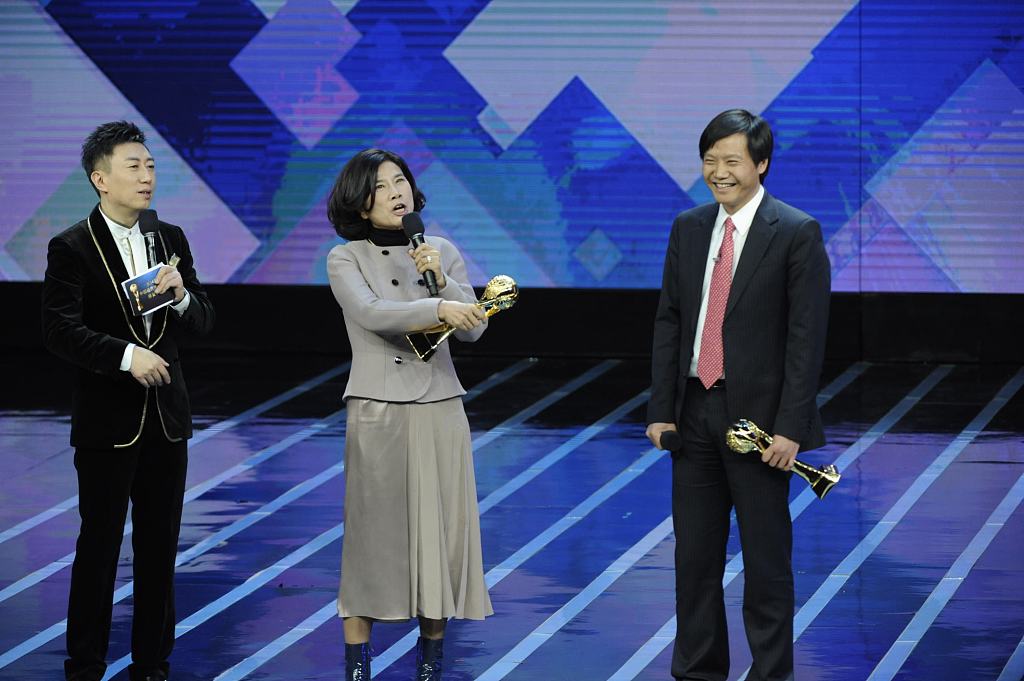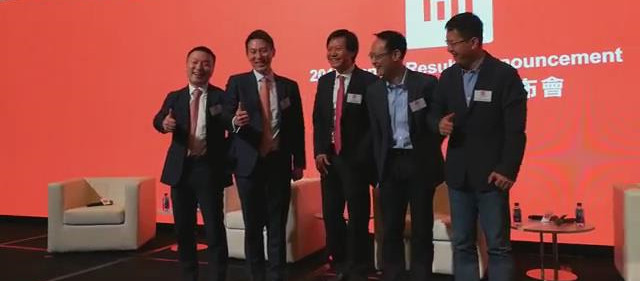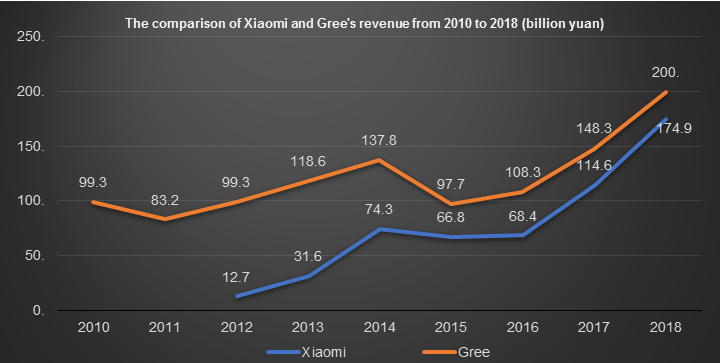
This is People’s Daily Tonight, your news source from China.
A billion yuan bet. Who won?
After waiting a year for the release of The Avengers: Endgame, countless Marvel fans finally saw the ending of the infinite war on April 24. Four days later, as Gree released its 2018 annual report, a blockbuster bet came to an end as well.
A billion yuan: two entrepreneurs' bet
On December 12, 2013, Lei Jun, founder of Chinese smartphone giant Xiaomi, and Dong Mingzhu, chairwoman of Chinese home-appliance leader Gree Electric, were awarded the 2013 CCTV China Economic Person of the Year.
The host asked Lei whether he had the confidence that 23 years later (Gree was 23 years old in 2013), Xiaomi’s revenue could continue to grow with almost zero plants, workers or retail stores.
Lei Jun answered positively. Dong Mingzhu said Xiaomi developed very fast within the first three years, but Lei should think about whether the current model would be able to take Xiaomi further. After a few exchanges and witnessed by the whole country, Lei, made a bet with Dong.

Dong Mingzhu (M) and Lei Jun (L) make a billion-yuan bet. (File photo: VCG)
“If Xiaomi sales can exceed Gree’s within five years, Mrs. Dong will give me one yuan,” Lei said. However, Dong responded immediately by saying, “First, I won’t lose and second, one yuan is not much; I bet you one billion yuan!”
The “billion yuan bet” (nearly $150 million) not only shocked social media but also reminded people to observe these two success stories in China’s booming tech and industrial landscapes.
Tough battle no one foresaw
Five years later, on March 19, 2019, Xiaomi announced its third financial report. For shareholders, the performance was worthy of attention, because it was the first annual report after Xiaomi's listing. And the report also made this topic hit social media once again since it was related to the dramatic bet.

On March 20 at Xiaomi’s 2018 earnings release, Lei Jun (center) was asked about the results of his five-year, billion yuan bet with Dong Mingzhu. He laughed and said that he was still waiting for Gree’s official financial report and that Dong had not contacted him (Dong denied). (Screenshot)
Xiaomi’s earnings release stated that its total revenue was 174.9 billion yuan in 2018, up 52.6 percent year-on-year, while its net profit was 8.6 billion yuan, up 59.5 percent year-on-year. About one month later, on the night of April 28, Gree released its 2018 annual report. The report said the company had a total revenue of 200.0 billion yuan, up 33.3 percent year-on-year, with a net profit of 26.2 billion yuan, up 17.0 percent year-on-year. In other words, Xiaomi lost the bet.
Nevertheless, it is quite clear that Xiaomi only spent 5 years to increase its revenue from 30 billion to 170 billion and the revenue gap between Xiaomi and Gree is narrowing. From this point of view, even though Dong won this bet, this game was not as easy as she thought. Gree needs a new growth point if Dong wants to stay ahead.
In the eyes of most people, this is a story of a rising internet star who surpassed a big-time player in traditional home appliances. But no one thought that Xiaomi and Gree would fall into a quagmire at almost the same time.

Xiaomi and Gree's revenue from 2013 to 2018. (Chart: People’s Daily)
Because insufficient attention was paid to brick-and-mortar stores and supply chains, Xiaomi began to suffer from a siege by Huawei, OPPO and Vivo in 2015. In 2016, Xiaomi experienced its darkest hour since its establishment. Lei had to change his internet model to be more physically present. Xiaomi’s stumble did not give Gree a chance to widen the gap. In the de-stocking war in the household appliance industry in 2015, Gree registered its worst financial report in the past five years: its annual revenue fell by nearly 30 percent, and fell below 100 billion yuan. Gree felt the pain of relying too heavily on air conditioners.
It seems Lei Jun lost the bet but Xiaomi’s future is a little bit clearer than Gree's. However, from the perspective of net profit, Xiaomi still has a long way to go. Compared to Gree, which had a profit of 26.2 billion yuan, Xiaomi’s was only 8.6 billion yuan. Xiaomi's shares remain below its IPO price. On the contrary, Gree shares hit new highs several times this year.
The Avengers can have an “endgame”. But for entrepreneurs, the game is never over once it begins. Regardless of whether they will make another bet in the next five years, people will still watch them and wait for a new answer.
And that's People's Daily Tonight. Thanks for joining us.
(Produced by Han Xiaomeng; Text from People's Daily app)


